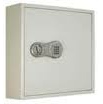www.thetinman.org Copyright © All rights reserved.

Disclaimer: The material presented in this site is intended for public educational purposes only. The author is not offering medical or legal advice. Accuracy of information is attempted but not guaranteed. Before undertaking any diet, or health improvement program, you should consult your physician. The author is in no way liable or responsible for any bodily harm, physical, mental or emotional state of any patient reacting to any of the content on this site. Thetinman.org has not examined, reviewed or tested any product or service mentioned herein. We are not being paid to advertise or promote any product or service mentioned herein. The links are offered strictly as examples of resources available. The site assumes no responsibility or liability of any kind related to the content of external sites or the usage of any product or service referenced. Links to external sites were live at the time of creation of the link. Thetinman.org does not create content for or manage external sites. The information can be changed or removed by the external site’s administrators at any time and they are responsible for the veracity of their information. Links are provided to support our data and supply additional resources. Please report broken links to administrator@thetinman.org. Thetinman.org is not a charitable foundation. It neither accepts nor distributes donations or funds of any kind.


There are may types of personal, medical, and domestic services available.
1. Skilled nursing provides tracheotomy and ventilator care, administers medications and treatments, offers client and family education, acts as liaison between client and physician, and performs tube feedings, catheter care, and medication management.
2. Household Services include light housekeeping, errands (prescription pick-up, dry cleaning, etc.), organizing and reading mail, grocery shopping, laundry & ironing, escorting to appointments and social events, assisting with pet care, planning, preparing, and cleaning up meals.
3. Personal Care Services include assistance with a safe bathing environment, daily grooming and hygiene needs, dressing, walking, and posture positioning.
4. Companion Services include providing companionship and conversation, respite care, medication reminders, monitoring diet and eating, assisting with getting in and out of bed, entertaining (games, crafts, reading, etc.), assisting with clothing selection, arranging for medical, dental, or other professional appointments.
5. Sitter Services (in the home, hospital, or facility) include maintaining a patient’s comfort level, assisting with meals and feeding, seeking assistance from the hospital/facility nurse when a patient is in need, monitoring patient activity (i.e. ensuring patient stays in bed, IVs remain in place, etc.), supervising a patient through the night, ensuring family members know that their loved one is safe when they are unable to be there, and entertaining (games, crafts, reading, etc.).
There are many disability aid programs at the state level. There are also many private companies for hire.
With any kind of in-home care, the primary concern is safety. It is crucial that these services be closely vetted by caregivers or loved ones. The elderly and those with limited mobility are especially vulnerable to frauds and scam artists. Never pick a professional from an unvetted Internet referral service or Craig's list. Get references.
Always have someone else present when you first evaluate candidates.
Agree on services and cost up front. Remember they are not your personal servant. Don’t try to add services you have not agreed to before hand. Understand the cost basis. Are you paying them by the hour, by the visit, or by the services rendered?
Ask about payment plans. It is best to pay by check or credit card so you have a paper trail and proof of payment.
Service availability varies by location. It is always best to start with your physician or local hospital for referrals.
Examples of nursing services.
http://www.maximhomecare.com/careforpeoplewithdisabiliti es/
http://www.griswoldhomecare.com/conditions/adults-with-disabilities-care/
http://www.carefocuscompanion.com/disability-home-assistance.aspx
http://www.synergyhomecare.com/solutions/disabilities/
http://www.rightathome.net/care/services/skilled-nursing/
For a list of Adult Day-Care resources visit:
http://www.alz.org/care/alzheimers-dementia-adult-day-centers.asp
http://www.eldercare.gov/Eldercare.NET/Public/Resources/F actsheets/Adult_Day_Care.aspx
Consider running a criminal background check on anyone who will be working inside your home.
http://www.medicare.gov/coverage/home-health-services.html
http://www.intellicorp.net/marketing/home.aspx
http://www.intelius.com/background-check.html
http://backgroundreport360.com/
http://www.nahc.org/consumer-information/right-home-care-provider/
If the home care provider is licensed by a specific professional organization, make sure you confirm their credentials: home nurses, physical or occupational therapists, adult day-care givers, etc. Verify that an individual is licensed to practice in your state and has not been disciplined. Each state will have a governing agency for licensed professionals.
Nurses: http://www.aacn.nche.edu/ccne-accreditation
Physical therapists: http://www.apta.org/Licensure/
People with mobility issues are especially vulnerable. Once you allow someone access to your home, you want to be able to trust them. They may be fine, but their romantic partner or friends might not.
This can happen with any service, but particularly mom and pop operations. Scammers can case your house for your valuables or your drugs.
Do not leave medications lying around so they are easy to steal.
Always keep them locked away when other people are in the home. Consider installing a key lock on a closet door to hold valuables and extra medications for times when other people will be in the home.
Medicine safes can be useful. There are several sizes and types from lockboxes to installed medicine cabinets.
https://www.medguardsafes.com/
http://www.onestepahead.com/Smart-Guard-Medicine-Safe.pro
Consider installing “nanny-cams” to ensure your loved one is being taken care of when you are not home or to monitor their progress when you are not at home. Some cameras provide live feeds so you can check in via your phone or computer.
http://www.spytecinc.com/video-devices/nanny-cams.html
http://www.thehomesecuritysuperstore.com/home-spy-equipment-spy-cameras-nanny-cams-sub=149
http://www.gadgetsandgear.com/nanny-cameras.html
Other emergency and Life Alert systems can be found here.
If at-home care is not enough, the time may come that you must consider residential care. There are many resources to help you choose the right solution. For people who are unable to live by themselves, but who do not need 24-hour nursing care, there are non-medical facilities. They are not required to have nurses, certified nursing assistants, or doctors on staff. This includes board and care homes, rest homes, assisted-living, and continuing care retirement communities. They are licensed and inspected by the state.
The cost depends on a variety of factors such as the type of accommodations (e.g., apartment, private room, shared room), the range of services needed, and the geographic area. The monthly cost can range from $1000 a month for a resident on Supplemental Security Income (SSI) to $9,000 a month for private homes. Specialized services like dementia or hospice care are more costly.
Important considerations when choosing a residential treatment facility should include:
1. What is the experience level of the owners and each staff member?
2. Ask for references and check them.
3. Will you be able to effectively communicate with the staff?
4. What is the staff-to-resident ratio?
5. Are the caregivers live-in or do they work in shifts?
6. Is there an RN on-site at all times? If not, is there an RN advisor or an RN on-site at specific times?
7. Are pets allowed?
8. Is smoking allowed? Some states don't allow smoking in-doors. Some allow it outside, but some do not.
9. Do they provide transportation to medical appointments or even outside activities such as church services?
10. How are health issues managed, including the activities of daily living, such as bathing and toileting?
11. Does the staff make doctor's appointments?
12. Can spending money be managed by the staff?
13. Are the residents just reminded to take meds, or does the staff administer them?
14. Will prescriptions be managed and/or picked up by staff?
15. Will the home provide different meal options that appeal to your loved ones tastes?
16. How much is the monthly rate, including all the fees? Does the home accept Medicaid? Do you need to pay out-of-pocket for a period of time before they accept Medicaid? How does billing work? Will residents pay themselves, with long-term care insurance, or by Medicaid? What expenses are not covered?
Residential facilities are licensed at the state level and you can search for specific facilities and ratings of facilities in your state or geographic area.
http://www.cdc.gov/nchs/nsrcf.htm
http://www.alz.org/care/alzheimers-dementia-residential-facilities.asp#choosing
http://www.alz.org/care/alzheimers-dementia-residential-facilities.asp#checklist
http://www.disabilityrightsca.org/pubs/502501.pdf
http://www.assistedlivinginfo.com/Assisted-Living-Care/What-is-Assisted-Living
http://www.nolo.com/legal-encyclopedia/when-will-medicaid-pay-nursing-home-assisted-living.html


IN-HOME CARE
Living with SPS Self Care Grooming Dressing Bedroom Safety Housebound/Bedridden
Kitchen,Cooking & Groceries Home Care Hiring a Service In-Home Care Exercise Mobility Driving
Managing Medications SPS & Pregnancy Organizing Information Financial Aid Legal Aid Mental Health
Anxiety & Depression Suicide Prevention Relationship Health Risk of Abuse Venting Caregiving
Disclaimer: The material presented in this site is intended for public educational purposes only. The author is not offering medical or legal advice. Accuracy of information is attempted but not guaranteed. Before undertaking any diet, or health improvement program, you should consult your physician. The author is in no way liable or responsible for any bodily harm, physical, mental or emotional state of any patient reacting to any of the content this site. Thetinman.org has not examined, reviewed or tested any product or service mentioned herein. We are not being paid to advertise or promote any product or service mentioned herein. The links are offered strictly as examples of resources available. The site assumes no responsibility or liability of any kind related to the content of external sites or the usage of any product or service referenced. Links to external sites were live at the time of creation of the link. Thetinman.org does not create content for or manage external sites. The information can be changed or removed by the external site’s administrators at any time and they are responsible for the veracity of their information. Links are provided to support our data and supply additional resources. Please report broken links to administrator@thetinman.org.